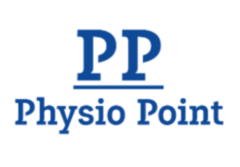
Effective Management of Neck Pain: UK Best Practices and NICE Guidelines
Neck pain is a common issue that affects millions of people, often causing significant discomfort and impacting daily life. At Physipoint, we are committed to providing evidence-based treatments that align with the UK’s best practices and the National Institute for Health and Care Excellence (NICE) guidelines. This blog post aims to guide you through the management of neck pain, highlighting the recommended approaches and therapies to help you achieve optimal outcomes.
Understanding Neck Pain
Neck pain can arise from various causes, including poor posture, muscle strain, cervical spondylosis, and trauma from accidents. It is crucial to identify the underlying cause to tailor an effective treatment plan. Symptoms may include stiffness, muscle spasms, headaches, and reduced range of motion.
Best Practices for Managing Neck Pain
Initial Assessment and Diagnosis
- A comprehensive assessment by a healthcare professional is essential. This includes a thorough medical history, physical examination, and, if necessary, imaging studies like X-rays or MRI scans.
- Identifying red flags such as severe trauma, neurological deficits, or systemic symptoms (e.g., fever, unexplained weight loss) is crucial for ruling out serious conditions like infections or malignancies.
Self-Management and Education
- Educating patients about neck pain and its management is a key component. This includes advice on maintaining good posture, ergonomics at work, and regular physical activity.
- NICE guidelines recommend providing patients with information on the natural history of neck pain and setting realistic expectations for recovery.
Physiotherapy and Exercises
- Physiotherapy is a cornerstone of neck pain management. Tailored exercise programs focusing on strengthening and stretching the neck and shoulder muscles can alleviate pain and improve function.
- Manual therapy, including mobilization and manipulation techniques, can provide short-term pain relief and enhance movement.
Pain Relief
- Over-the-counter pain medications, such as paracetamol or non-steroidal anti-inflammatory drugs (NSAIDs), can be effective for short-term relief.
- NICE guidelines suggest considering prescription medications, such as muscle relaxants or antidepressants, for chronic neck pain if first-line treatments are ineffective.
Multidisciplinary Approach
- For persistent or complex cases, a multidisciplinary approach involving physiotherapists, general practitioners, pain specialists, and psychologists may be necessary.
- Cognitive-behavioral therapy (CBT) can be beneficial for addressing the psychological aspects of chronic pain and improving coping strategies.
Complementary Therapies
- Techniques such as acupuncture, yoga, and Pilates may complement conventional treatments and provide additional relief. However, these should be used as adjuncts rather than replacements for evidence-based treatments.
Lifestyle Modifications
- Encouraging patients to adopt a healthy lifestyle, including regular exercise, a balanced diet, and stress management techniques, can significantly impact overall well-being and pain management.
Adhering to NICE Guidelines
NICE guidelines emphasize a patient-centered approach, focusing on individualized care plans and shared decision-making. Key recommendations include:
Holistic Assessment: Consider the physical, psychological, and social factors contributing to neck pain.
Active Management: Promote physical activity and self-management strategies.
Minimize Invasive Interventions: Reserve surgical interventions and invasive procedures for cases where conservative treatments have failed, and there is a clear clinical indication.
Conclusion
Managing neck pain effectively requires a multifaceted approach that incorporates best practices and adheres to NICE guidelines. At Physipoint, we are dedicated to providing high-quality care tailored to your individual needs. By combining patient education, physical therapy, pain relief measures, and lifestyle modifications, we aim to help you achieve lasting relief and improved quality of life. If you’re struggling with neck pain, reach out to us today to start your journey towards recovery.
For more information or to book an appointment, visit our website or contact our clinic directly. Let us help you take the first step towards a pain-free life.
Disclaimer: This blog post is for informational purposes only and does not substitute professional medical advice. Always consult with a healthcare provider for an accurate diagnosis and treatment plan tailored to your specific needs.
